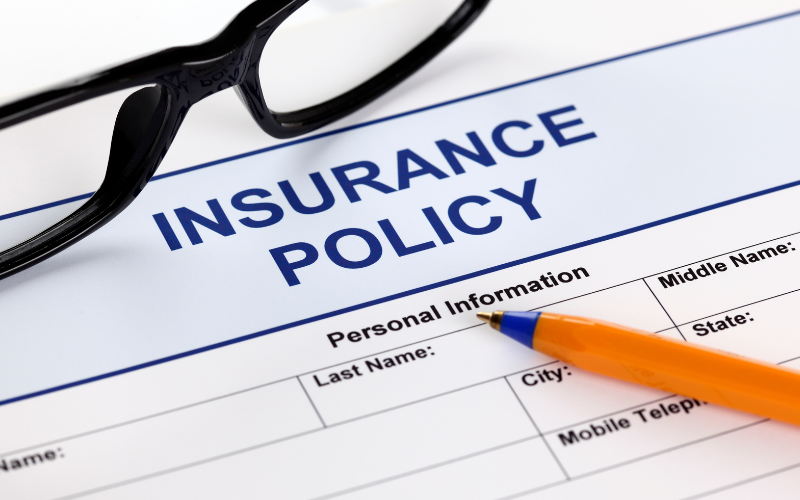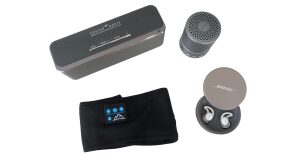Seeking professional help for tinnitus is not always a straightforward path. Many people initially seek out help for hearing loss and other tinnitus symptoms with their PCP before visiting a specialist, or jump straight to an Ear Nose and Throat (ENT) specialist and do not receive the full possible care for tinnitus and hearing loss together, such as Tinnitus Retraining Therapy, hearing aids, and other interventions known to help. The tinnitus treatment cost is also one to consider, as it is not uncommon for an insurance company to consider tinnitus a condition that is not covered.
Understanding the potential costs of tinnitus treatment is important, but getting a clear answer regarding cost and what is or is not included in a treatment package is not always easy. Some hearing professionals use hearing aids or tinnitus maskers as part of Tinnitus Retraining Therapy (TRT), with optional, separate add-ons in a treatment package, while others offer the bare minimum, based on what is covered by your insurance company (tinnitus services are almost never covered, but on rare occasion devices can be covered by insurance).
"Treble Health helped me turn down the sound of my tinnitus. Now I can breathe, and get on with my life!"

"Treble Health helped me turn down the sound of my tinnitus. Now I can breathe, and get on with my life!"
– Elisa
Book a free consultation to learn which Treble Health solution is right for you. Join Elisa and thousands more who have found lasting tinnitus relief.
There is no failsafe way to say how much tinnitus treatment will cost you specifically, or even what a treatment plan might look like, as it depends on several factors. The precise numbers will definitely vary according to geographic location and provider. We have compiled various resources in an attempt to deliver a clear idea of what you can generally expect.
How Much Does Tinnitus Treatment Cost?

Before seeking a tinnitus treatment provider, there are some common questions many patients have that can help determine which provider they go with, and which treatment plan they elect to utilize. The most common questions tinnitus patients have include:
- How much does it cost to have a tinnitus evaluation?
- How much does the tinnitus treatment plan cost?
- Is it covered by my insurance?
- Is this a one time cost? Or on-going cost?
- Do you provide any discounts? (Senior/Military/First Responder etc)
- Are there financing options available if needed?
The questions above are an excellent starting point from which to go if you are speaking to hearing professionals to address your hearing loss and tinnitus symptoms.
How Much Does It Cost to Have a Tinnitus Evaluation?
A tinnitus evaluation is a more involved process than a standard appointment to be fitted for hearing aids, or an appointment to evaluate hearing loss. Instead, an evaluation will usually include the following tests:
- Otoscopy. During otoscopy, a small, magnified light is placed in the ear canal, in order to visualize the canal and eardrum. Doing so allows professionals to make sure all structures are healthy and intact. It is also used during a fitting appointment for hearing aids.
- Tympanometry. This is an immittance test that evaluates the mobility of the middle ear, including the ossicles (small bones in the middle ear), to rule out the possibility of conductive hearing loss.
- Acoustic Reflex Testing. As its name suggests, Acoustic Reflex Testing evaluates a person’s acoustic reflex to loud noises once presented to the auditory system. If the issue is reflex related, this type of testing will be used to identify the issue.
- Sound Booth Audiometry. This test involves using earphones in the ears or headphones over a patient’s ears. Pure tones are played at different sound levels in short beeps, and patients are instructed to either push a button or raise a hand. Sound Booth Audiometry is used to identify the softest volume (or threshold) a patient can hear, to determine hearing levels and possible hearing loss.
- Word Recognition Testing. This is a test used to evaluate an individual’s speech discrimination ability.
- Speech In Noise Testing (QuickSIN). Like word recognition, this type of testing evaluates the ability to process speech when background noise is present.
- Distortion Product Oto Acoustic Emissions (DPOAEs). DPOAEs assess the presence of outer hair cell damage within the inner ear. This helps determine objective cochlear function, as damages may not appear in a traditional audiological evaluation.
- Loudness Discomfort Levels (LDLs). LDLs help identify the volume level of sound that causes discomfort at various pitches, and is typically used during a hearing aid appointment to ensure a comfortable fit and appropriate programming.
- Pitch Matching. In pitch matching, a practitioner presents sounds and tones to identify the pitch most similar to a patient’s tinnitus symptoms. Pitch matching can help develop appropriate TRT programming and hearing aid programming to match a patient’s needs.
- Loudness Matching. Like pitch matching, a hearing professional administers tones at different volumes to identify tinnitus loudness. This can help inform Tinnitus Retraining Therapy efforts and provide patients with a feeling of education and control.
- Residual Inhibition Testing. This is used to actively develop a tinnitus treatment plan, typically involving TRT and sound therapy. A white noise machine or masking device is played to overtake the sound of tinnitus for one minute, and stopped. Patients are instructed to identify when symptoms start again, and a treatment plan can be developed.
All of these tests are involved to identify tinnitus in one or both ears, and they may be billed together or separately. A tinnitus clinic is likely to rely on these tests to develop an effective tinnitus management system, and many insurance companies will cover at least a comprehensive audiological evaluation once per year (though a referral may be necessary). All of the tests specifically developed for treating tinnitus may be entirely the patient’s responsibility, as many insurance companies do not pay for tinnitus therapy evaluations unless more severe hearing loss is present. Ear wax removal can be a requirement of fitting for hearing aids, and evaluating for the use of Tinnitus Retraining Therapy, and this is frequently also not covered by insurance. Cerumen removal should be discussed prior to the actual procedure to determine costs.
How Much Does Tinnitus Treatment Cost?

Tinnitus treatment is a comprehensive process, which targets multiple concerns at once. Tinnitus treatment typically involves hearing aids, to support the auditory system, and different types of therapies to address the emotional components. Used together, these provide long-term support to mask or largely resolve bothersome tinnitus. Let’s explore some of the more commonly used treatment options below.
- Sound Therapy. Sound therapy (i.e. using sounds to reduce the perception of tinnitus) can be the lowest-cost treatment option when it’s administered from an app or table top speaker device. Following an evaluation, sound therapy can deliver sounds to mask the sounds of tinnitus. These can typically be purchased for $50-$100. However, the best clinical outcomes come from sound therapy delivered by on-ear medical devices, which can cost much more, as discussed in the next paragraph.
- Hearing Aids, Tinnitus Maskers, or Combination Devices. Patients using these devices to manage tinnitus are typically encouraged to use 2 ear-level devices rather than one, as the brain utilizes the treatment better with equal input from the two ears. Device cost can vary significantly, from $1,400-$4,000 per ear. The cost variation comes mostly from differences in hearing aid technology level, ranging from no hearing aid functionality to ‘premium’ hearing aid functionality which includes superior sound quality and performance in background noise. Typically, devices come with a warranty of 1-3 years to cover repairs and a 1-time loss and damage warranty that requires a deductible for replacement (usually $200-$400). Some clinics include hearing aids in the cost of audiology services (though the two are not always ‘bundled’ in this way), which includes a dispensing fee, device selection/evaluation fee, fit and orientation fee, follow up visits, and verification of hearing aid prescription fee.
- Cognitive Behavioral Therapy (CBT). CBT typically includes a set number of appointments, charged as a single, set fee, or may be charged per in-person or telehealth visit. Exact appointments range from $150-$300 per appointment. Hearing devices are not a requirement of CBT for tinnitus therapy, so it can be a lower-cost treatment option to address bothersome tinnitus.
- Tinnitus Retraining Therapy (TRT). Some clinics charge a flat fee for a TRT protocol, including a specific number of appointments and follow up visits. Plans typically include 5-10 appointments and vary from $3000-$8000. Because TRT is a comprehensive intervention, the cost typically includes the cost of ear-level devices and all associated appointments; though some clinics charge separately for devices and sessions.
Are Tinnitus Evaluations and Tinnitus Treatments Covered by My Insurance?

Tinnitus services are almost never covered by insurance. Occasionally devices and bundled appointments can be covered by insurance, under a hearing aid benefit. Industry reports suggest around 15% of insurance plans have a hearing aid benefit, though Medicare does not.
Is Tinnitus Treatment a One Time Cost or Pay as you Go?
Some clinics bundle the cost of treatment into a single, bundled “lifetime cost,” but others do not. The overall cost typically breaks down to be similar, regardless of bundled or unbundled services.
Can I Expect Any Discounts? (Senior/Military/First Responder etc.)
Because there are several patient populations, such as veterans, who are at greater risk for developing tinnitus, it is possible (though uncommon) to see clinics offer discounts on treatment plans for these populations. Each clinic will vary, but be sure to ask the clinic you are considering about these options.
Are There Financing Options Available If Needed?

To help spread out the total cost of treatment or remaining costs after insurance, financing options are frequently available. These may include Care Credit, Allegro Financing, in-house financing, and other options. If this would help you manage the cost, you should ask about your options.
Tinnitus treatment can offer significant improvement to symptoms. Seeking out further information regarding cost, discounts, and availability is the next step in receiving treatment for tinnitus symptoms, and ultimately improving the health and well-being of your brain and body. At Treble Health, we are conscious of the cost of tinnitus care, and offer a variety of solutions for our programs. If you’d like to learn more, please consider signing up for a complimentary Discovery Call with one of our audiologists who can give you a personalized answer.
Next Step: Book Free Consultation
- 75% of patients reduced their tinnitus within three months after following our recommendations.
- "I feel like Treble Health literally gave me my life back." - Randy S. (verified customer)
- Join thousands of people who have reduced their tinnitus after scheduling a free consultation.












